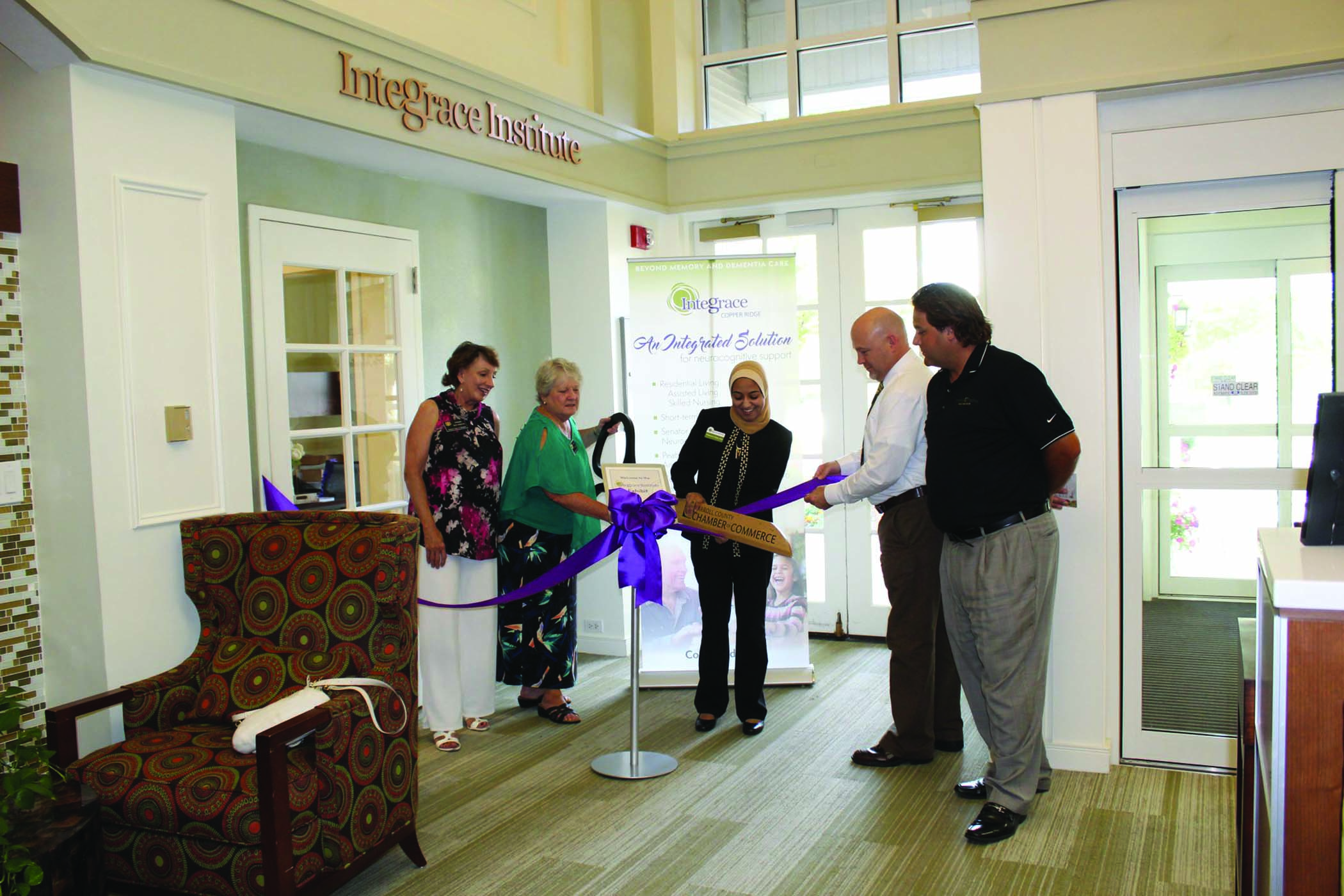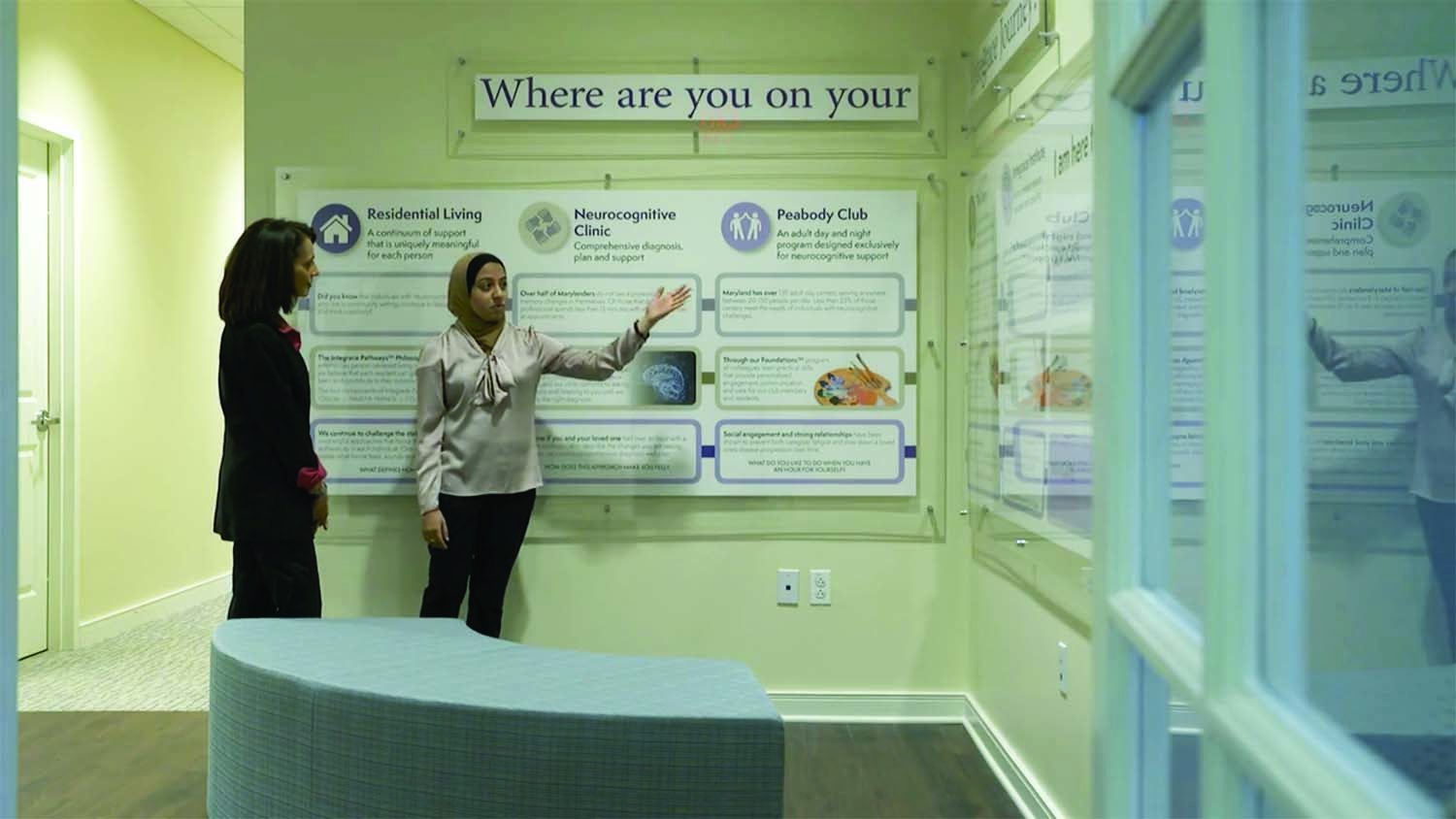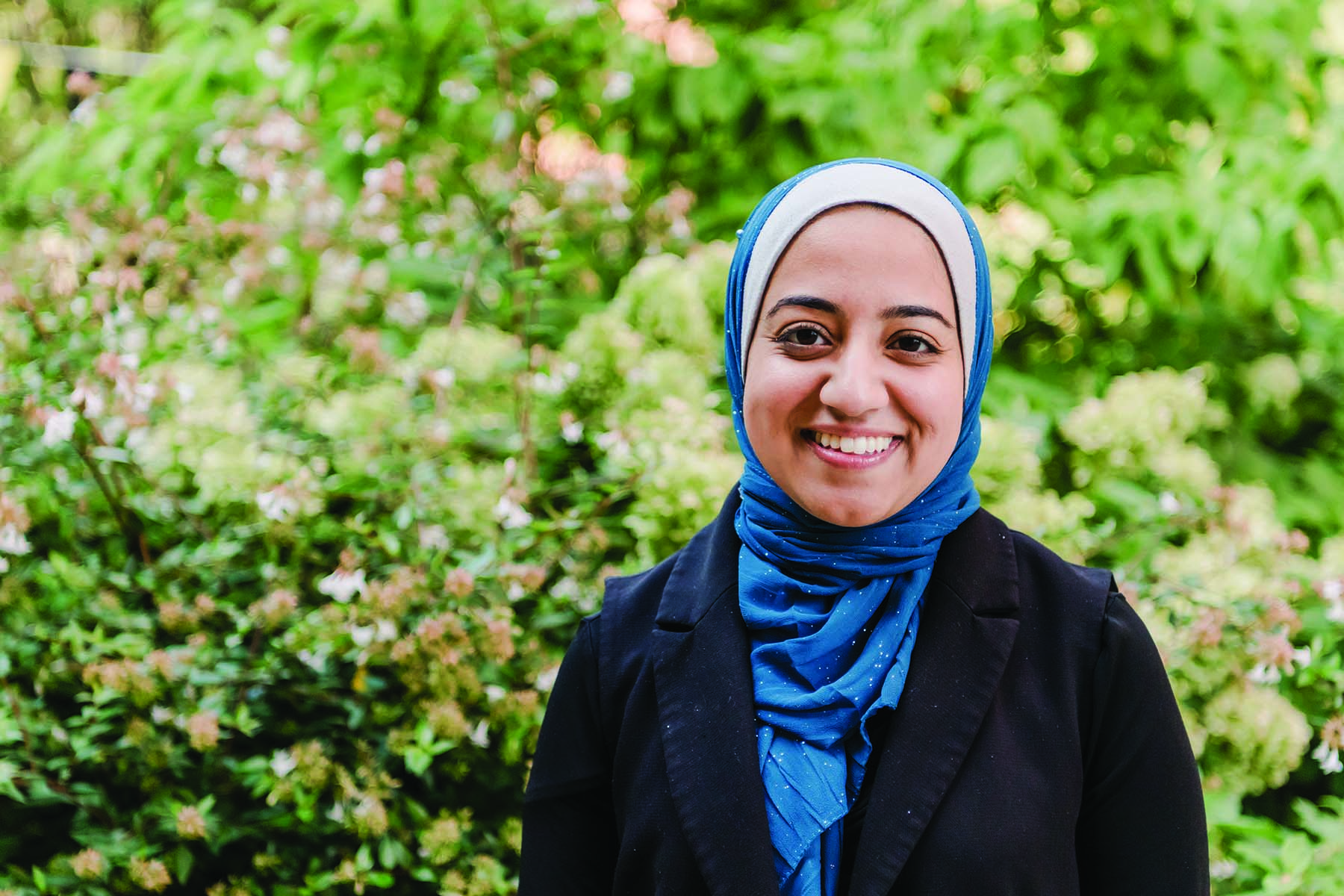Driven in her work by memories of her grandmother, Dr. Tabassum Majid, M18, ’10, interdisciplinary studies, M.A. ’18, management of aging studies, has made a career of education and research related to Alzheimer’s disease and dementia. Recently, she was recognized in the Baltimore Sun’s “25 Women to Watch in 2018” list. Following her undergraduate study in neurodegenerative disorders of the aged, she earned her Ph.D. from the Baylor College of Medicine in Houston and had a fellowship at the University of Maryland, School of Pharmacy. Today, as executive director of the Integrace Institute, former Meyerhoff Scholar Majid looks ahead to ways of improving the lives of elders and their support networks, and many of the tools she uses every day come from the interdisciplinary education she received at UMBC. Here, Majid tells us how taking a chance on UMBC, and granting the trust of her most precious possession — her dreams — has made all the difference.
“Trust us with your dreams; you were meant to heal the world.”
This is one of the first things that I heard as a freshman at UMBC, the first time a mentor ever pushed me to both be vulnerable and challenge the universe at the same time.
The mantra has stayed with me throughout my personal and professional journeys since setting foot on a campus that I have come to consider a second home. The story began there.
UMBC was not my first choice until I met the people in it. I had dreams, big ones: neurosurgery at Yale, curing Alzheimer’s disease, traveling the world and making music come alive.
Yet, my heart and mind were one when I interacted with society’s most vulnerable: Older adults with dementia who reminded me of my lifelong hero — my grandmother — and children with chronic illness but sunny dispositions.

It took some trust to hand that over to the gentle soul who greeted me on my first day on campus. How could I refuse a place that was saying yes to my dreams, telling me that anything was possible? Freshman? Meyerhoff Scholar? Creating your own interdisciplinary studies degree focused neurodegenerative disorders of the aged? “We can figure that out,” they said. You want to be SGA Vice President? “We’ve never had a freshman do that, but why not? You were meant for greatness. Grit is in your nature.”
The opportunities kept coming, but I didn’t understand why. I kept looking for something to tell me I was in the right place doing the right thing. And then it happened. I was asked to write down the story of my grandmother. A release valve opened, passion flowed out, and I started to solidify those dreams. Before I knew it, I was graduating and off to Houston, Texas, to work with my new set of mentors, internationally renowned pioneers in Alzheimer’s and dementia research.
I finished my Ph.D. degree by focusing on all of those who came before me, who paved the path. Who I trusted with my dreams. My parents, two immigrants who came to the U.S. to give me a better life; my grandmother, who inspires me daily; my mentors, dozens of them, who encouraged, guarded, and nurtured my dreams. I defended my dissertation and got a letter from that same gentle soul at UMBC: “You’ve done what you went there to do; now you may come home.”
I came back to Maryland and decided to teach, to give back, and begin my research trajectory. I started teaching and mentoring UMBC students as an adjunct faculty member while doing my post-doctoral research. I found the most joy in seeing others be inspired to achieve their dreams, to discover their grit. I kept working with individuals with dementia and their caregivers, and got an amazing job at the Integrace Institute, a non-profit organization in Maryland that integrates research, education, and consulting together to transform the lives of those with neurocognitive changes.
I needed more knowledge on this new industry, so I came back to UMBC for my MAgS degree. Every day is different now. Whether I am teaching staff members on how to individualize care, chatting with a resident about their life, presenting at a national research conference on brain health, I’m living those dreams with my UMBC family. One of my students used her museum design background to create an exhibit space to communicate research and educational findings in an innovative way. Another is using his musical talents to help us with a meaningful music study. Faculty and staff are co-creating curriculum and collaborating on research and future intergenerational programs. We are always looking ahead for more ways to grow, expand, and change.
It has been a transformational journey for me, expanding and changing as quickly as UMBC. In times of change, however, it is comforting to know that a walk around the loop will always welcome me home.


